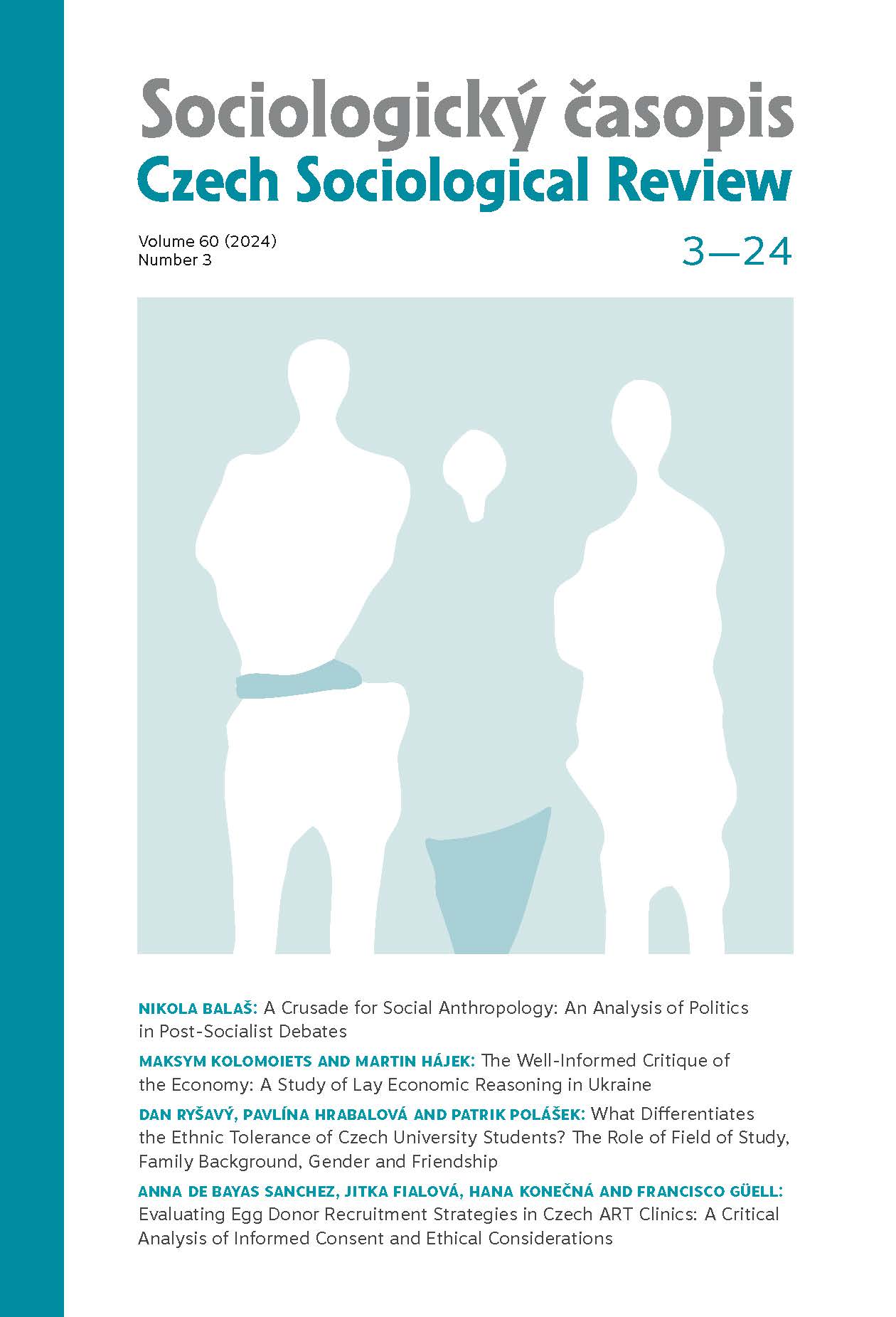Evaluating Egg Donor Recruitment Strategies in Czech ART Clinics: A Critical Analysis of Informed Consent and Ethical Considerations
Evaluating Egg Donor Recruitment Strategies in Czech ART Clinics: A Critical Analysis of Informed Consent and Ethical Considerations
Author(s): Anna de Bayas Sanchez, Jitka Fialová, Hana Konečná, Francisco GüellSubject(s): Gender Studies, Ethics / Practical Philosophy, Methodology and research technology, Health and medicine and law, Sociology of Culture, Sociology of Law
Published by: AV ČR - Akademie věd České republiky - Sociologický ústav
Keywords: assisted reproduction; oocyte donation; informed consent; misleading advertising
Summary/Abstract: There is a high demand for egg donors in the Czech Republic, driven by international couples’ interest in assisted reproductive procedures due to affordable treatment, no waiting list, and an extended age limit for recipients up to 49 years. For a population of 10.5 million, the country has 48 reproductive clinics. This study aims to evaluate Czech egg donor recruitment campaigns through the lens of free, informed, and specific consent requirements. A quantitative-qualitative analysis of recruitment strategies from 29 unique clinic websites in Czechia was conducted, with 12 sites specifically designed for marketing purposes. The analysis was based on 14 criteria. Of the 29 clinic websites, only three did not indicate compensation amounts, ranging from 800 to 1400 EUR. Thirteen clinics did not provide information on risks associated with oocyte donation, with one falsely stating no risks exist. Twenty-two websites used emotionally evocative quotes and images. Thirteen clinics did not disclose time commitments, and one provided misleading information. Seventeen clinics omitted conditions for donor refusal and the number of allowable donations. Eighteen clinics did not offer post-donation referrals. Conversely, 15 clinics highlighted psychological benefits, and 23 emphasized health benefits. None fully complied with international guidelines on oocyte donation. Analysed websites lack sufficient information for responsible egg donation decisions. The emphasis on compensation, benefits, and suggestive graphics creates an image of safe, community-oriented donation, potentially leading to inadequate understanding of health risks and commodification of the female body.
Journal: Sociologický časopis / Czech Sociological Review
- Issue Year: 60/2024
- Issue No: 3
- Page Range: 321-346
- Page Count: 26
- Language: English

